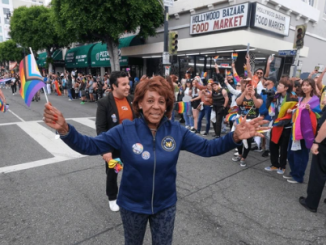
Hannah Arensman dreamed of making the 2024 Paris Summer Olympics. As one of the top women cyclists in the U.S., she had that dream in reach.
Instead, the 24-year-old Arensman retired after a race in December in which she lost out on a podium finish to a biological male rival.
Arensman broke her silence on her retirement this week, telling the UK’s The Telegraph that the loss to controversial transgender cyclist Austin Killips devastated her family.
“There are a million different levels where it hurts,” Arensman said (via The Telegraph).
Killips, who began competing in cycling in 2019 after undergoing hormone therapy, made news earlier this month by winning the prestigious Tour of the Gila in New Mexico, becoming the first transgender competitor to win a globally-sanctioned stage race.
Arensman recalls the hurt she felt in December, when Killips edged her for third place at the US cyclocross championships in Connecticut. Another transgender competitor finished behind her in fifth place.
She walked away from the sport after that race. Arensman’s complaints about Killips competing against biological women are familiar ones. She notes that biological men have a distinct physical advantage.
“A guy, even if mediocre in the men’s field, is more than capable of breaking records and making podiums in women’s races,” she said. “It’s why we have the division of the men’s and women’s categories. Our bodies are very different. One is biologically stronger than the other. Even if you try to stunt that growth, [a man’s] body has already undergone those changes once [he’s] past puberty. They’re permanent.”
In the first few months after her retirement, Arensman said she was afraid to speak up about the issue for fear of backlash from transgender activists.
“The transgender community is very loud,” Arensman said. “But I don’t believe you should sacrifice sport, against the wishes of the majority, for the minority. That’s not how it works. We have a culture right now where, if you say or do something that is against the status quo, where most of the loud people are, you just get hammered, verbally or even physically.”
Now that she doesn’t have to worry about losing sponsors or anything, Arensman feels free to speak out.
“I hope that more of the silent majority start finding their voices to say, ‘Actually, this is wrong,’” Arensman said. “Even if it leads to a putdown, or a loss of privilege in some way, at least it means that the next generation will have a level playing field.”
* Article From: The Comeback


